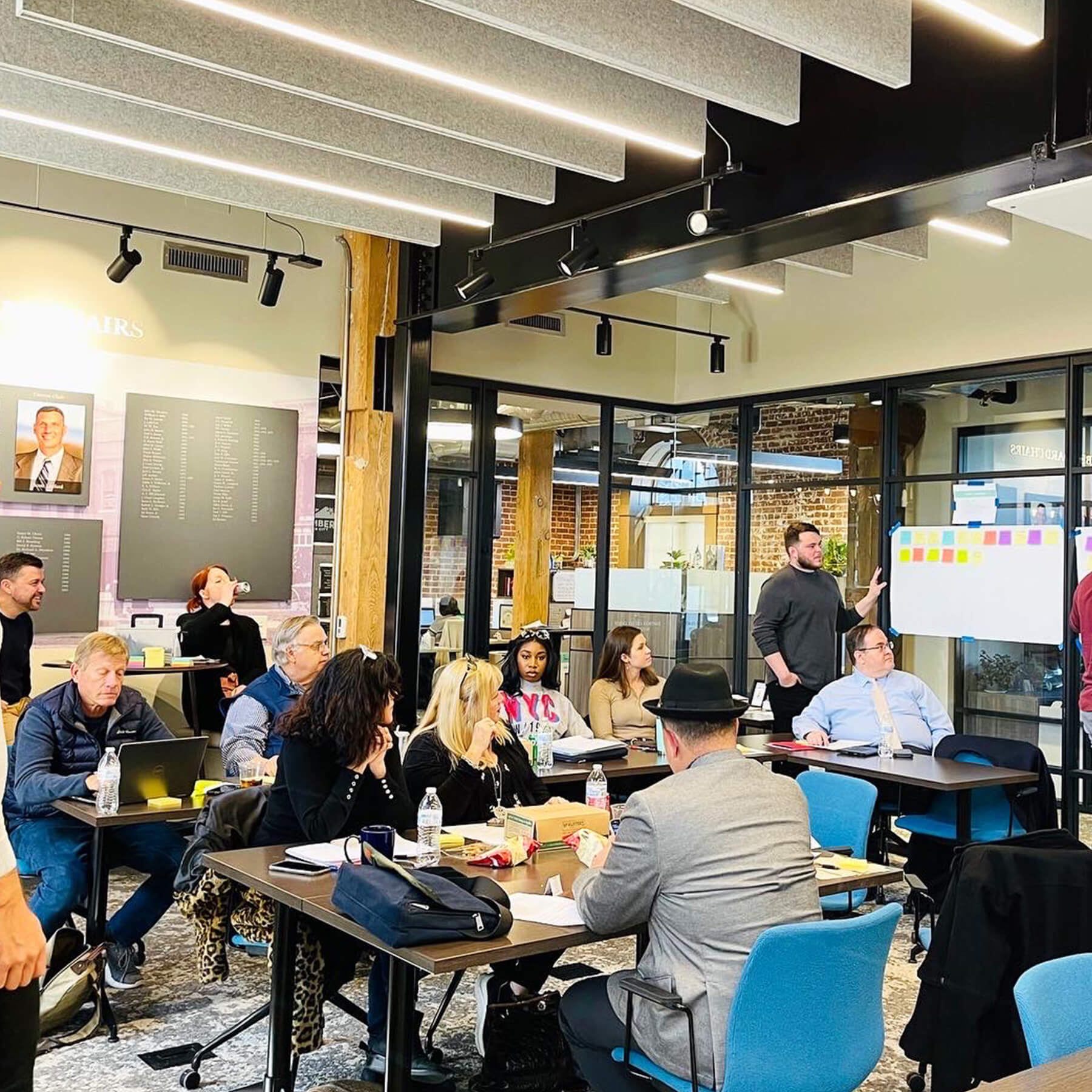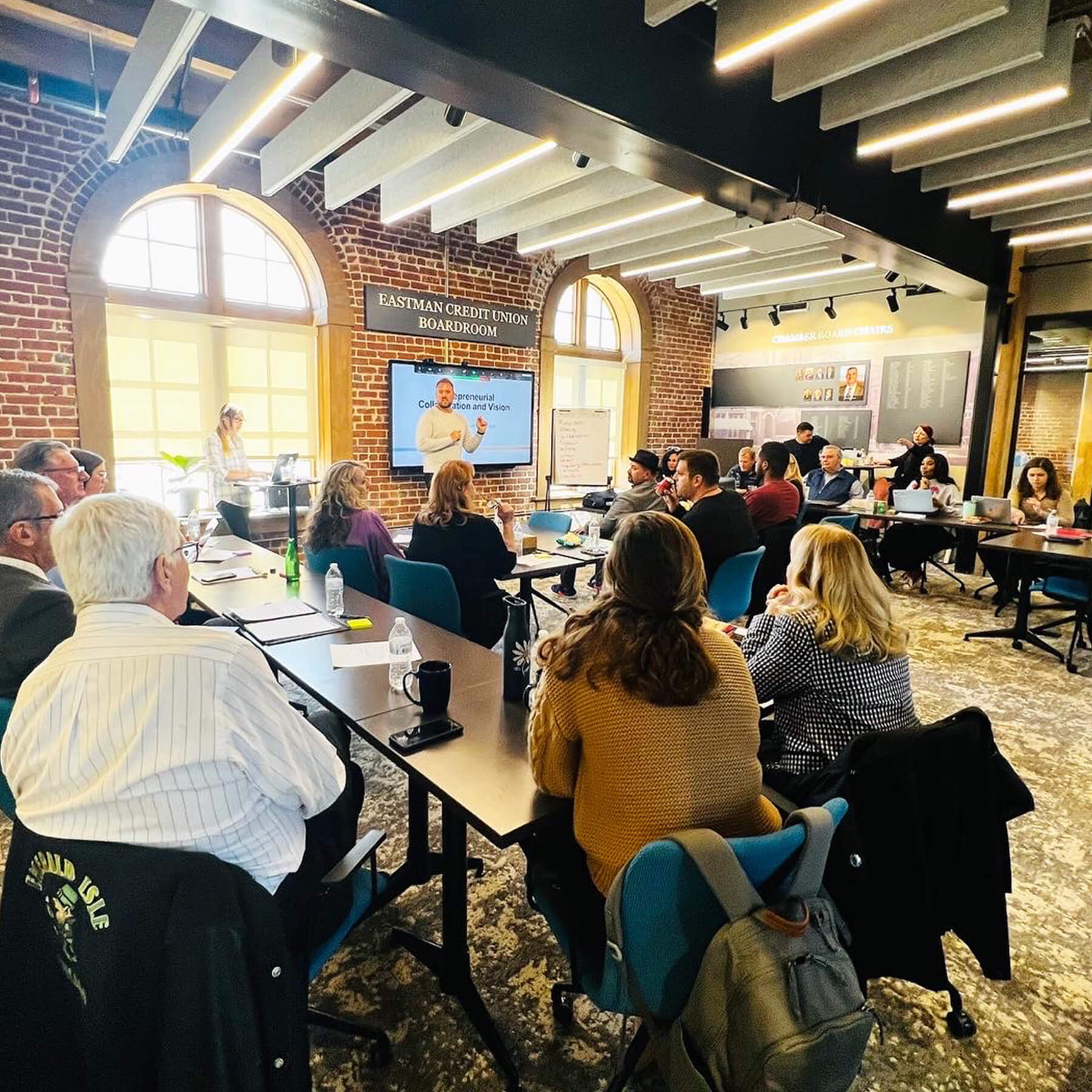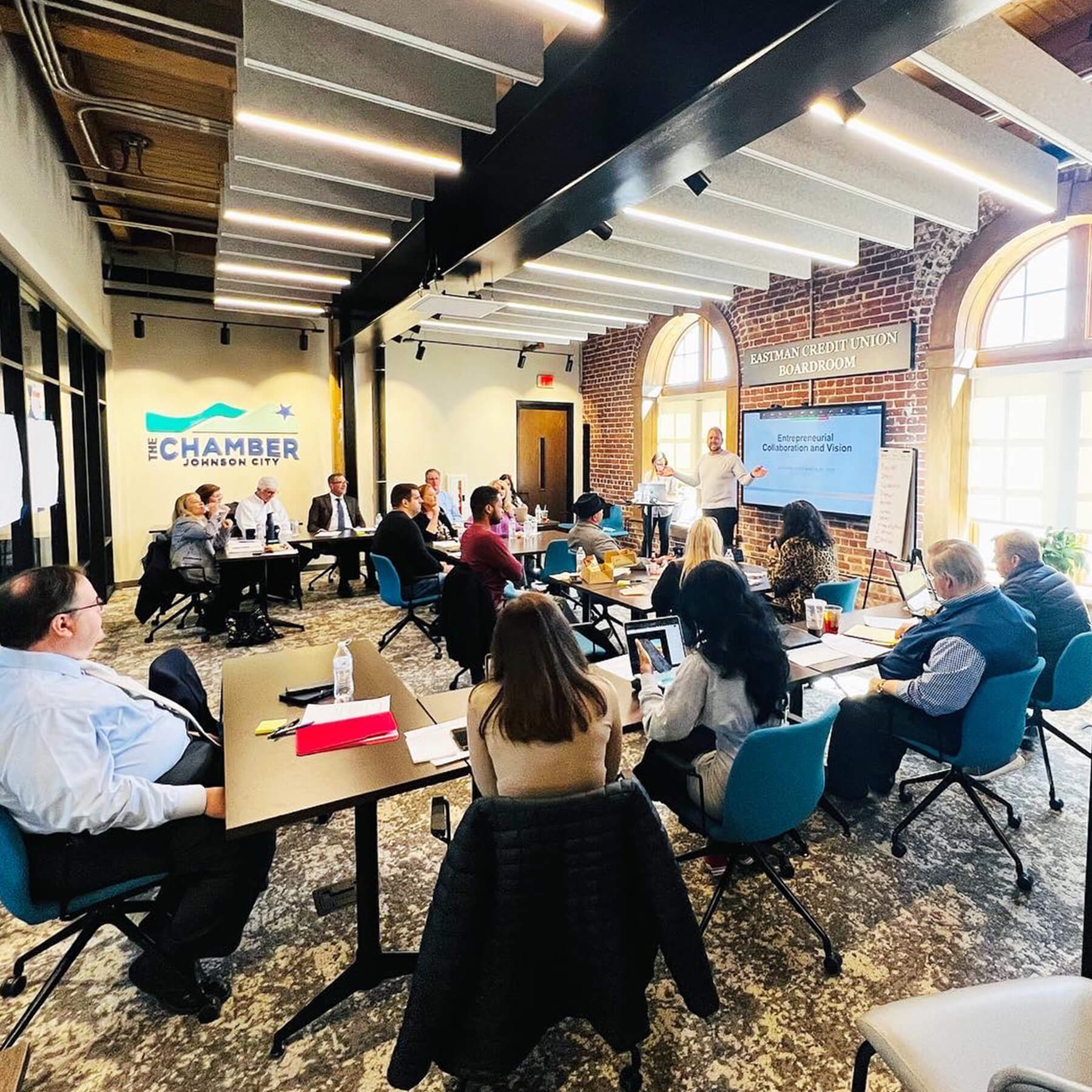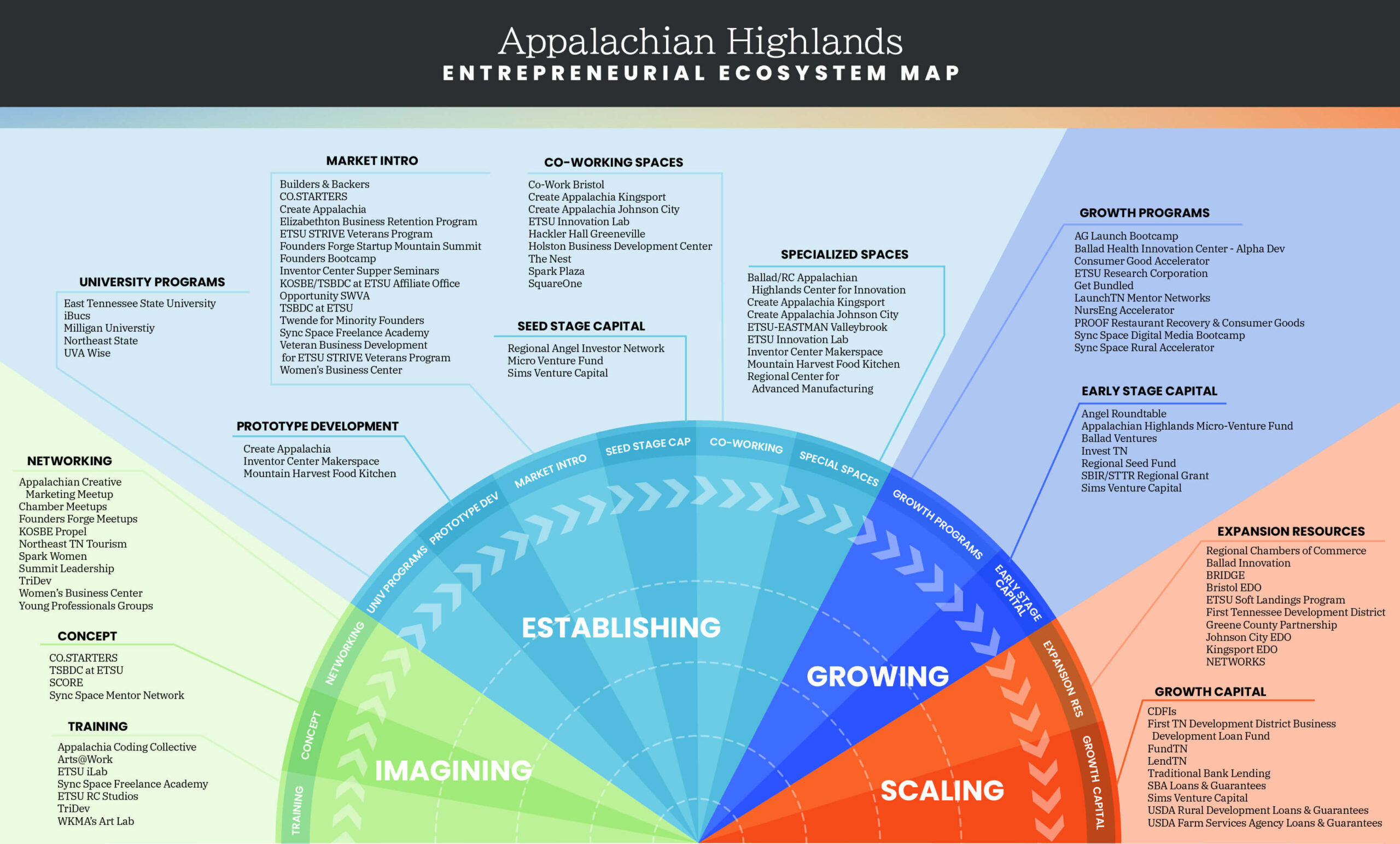What is an ecosystem map?
An entrepreneurial ecosystem map is a visual representation that illustrates the interconnected elements and components that foster entrepreneurship, growth, and innovation within a specific region or community. It provides an overview of the key organization, resources, support systems, and pathways that contribute to the growth and success of entrepreneurial activities.







Let's Break It Down
The map is broken into 4 major growth stages for a business:
Imagining
For this section, we have identified three major milestones as Networking, Concept, and Training.
Networking
Providing networking opportunities for entrepreneurs, students, inventors, creators, remote and a digital workers through events, meetups and spaces.
Concept
People in the concept phase are looking for ways to brainstorm, evaluate, and refine their business idea and draft a roadmap to begin their business journey.
Training
Establishing
For this section, we have identified six major milestones as University Programs, Prototype Development, Market Intro, Seed Stage Capital, Co-Working Spaces, and other types of Specialized Work Spaces.
University Programs
Prototype Development
Market Intro
Seed Stage Capital
Co-Working Spaces
Specialized Spaces
Growing
For this section, we have identified two major milestones as Early Stage Capital and Growth Programs.
Early Stage Capital
Growth Programs
Scaling
For this section, we have identified two major milestones as Expansion Resources and Growth Capital.
Expansion Resources
Growth Capital
Our Network
This Ecosystem Map is made possible because of all the hardworking Entrepreneurial Support Organizations that exist in our region. If you know of any programs, groups, or organizations that will help us enhance this map, please contact us!


